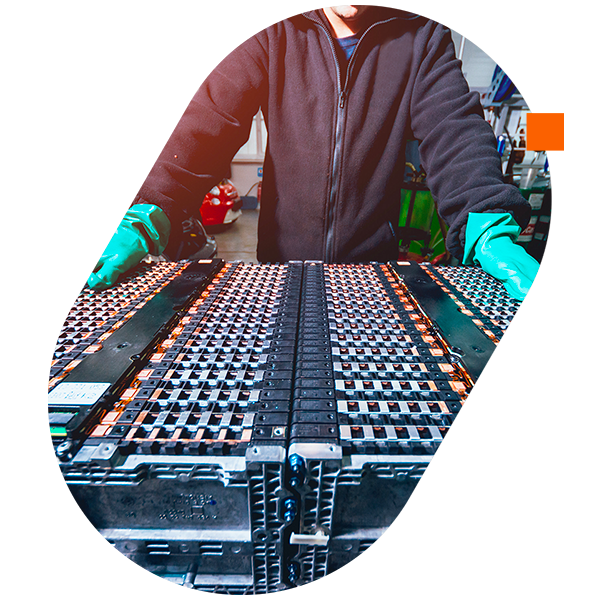While ever man still has goals to reach he cannot grow old.
Enzo FerrariThe powertrain is the heart of any vehicle. Modern mobility has changed history, redesigned landscapes and invented a new concept of travel, helping to reduce the distance between people.
The powertrain is the symbol of this technological revolution, synonymous with speed, passion and courage, to the point where it is considered an art. This is the art of the perfectly synchronised movement of the cylinders coupled to the transmission, capable of transforming power into acceleration and speed.
Teoresi has been making its contribution since 1990s, a pioneer of “model based design”, it works in the design, simulation, validation and calibration of engines, lending crucial support to the development of the most recent and high performing turbocharged and diesel petrol engines.
Now, at the peak of traditional engine technological maturity, the challenge has changed and what has been done so far, needs to be re-imagined. Today, we are faced with a momentous revolution of the powertrain.
The European Union has put in place strict targets on emissions and the market is pushing evolution towards lighter and more compact vehicles, aiming to reduce weight and consumption without losing power and produce low environmental impact engines.
Research is focused on engines that use alternative fuels, such as natural gas, bio-fuels, electric motors and the new frontier of hydrogen mobility.
The new solutions are fully electric or hybrid (BEV and PHEV), with kinetic energy recovery and an auxiliary engine coupled to the heat engine. Electric engines are more responsive and faster, light and robust, they have fewer mechanical wear parts and are more environmentally friendly at the same time. And all this is impossible while at the same time giving a powerful and silent driving experience.
Optimal battery management, lifespan extension and a possible “second life” after the vehicle’s on board life cycle is exhausted are just some of the things that play a role in making electric cars more sustainable and accessible to the wider public.
Alongside fully electric engines, the focus is also on hydrogen-powered fuel cell engines. These fuel cells are being actively developed in laboratories around the world and promise equally significant innovation. A future that, thanks to the possibility of producing hydrogen from renewable sources, is becoming increasingly likely.
New hybrid or electric drive cars have changed the concept of driveability, perfectly combining low fuel consumption and low emissions with smooth, fluid and powerful gear changes. But a safe and perfect driving experience for the driver can only be guaranteed if the engine, transmission and battery are fine-tuned to the maximum. This makes the challenge more demanding and requires new paths to be found through even well-established development methods.
Electric and hybrid cars are systems with high-frequency power components combined with a partly random battery response, this makes system simulation highly complex compared to that typical of the internal combustion engine.
Artificial intelligence techniques are now also being used in the automotive field, to build driver models and to fine-tune the response of some subsystems over time.

Teoresi has many years of experience in simulation, fine-tuning, integration and validation methods for entire vehicle parts, including the power transmission chain. This experience across the many work teams allows Teoresi to tackle the challenge of the electric world including with a view to heavy and agricultural vehicles.
Modelling and fine-tuning of the entire system
The coupling of the electric world with the heat engine poses new challenges for vehicle engineering. Manufacturers and their suppliers have extensive knowledge in dealing with engine mechanics, but integrating battery systems, inverters and power electronics requires new skills.
Critical systems such as the battery management system (BMS) must be modelled, designed and fine-tuned taking into account their coupling with the entire vehicle system.
Teoresi specialises in modelling, fine-tuning and calibrating engine systems, having combined its thirty years of experience acquired with petrol and diesel engines with the issues of hybrid and electric. Teoresi’s services and tools use algorithms to identify and fine-tune engine performance and allow effective modelling of battery and charging system response.

Fine-tuning the engine control unit
To manage the growing complexity of engine calibration, Teoresi has developed specific tools and innovative testing methods. Through our work in the field we acquire, archive and analyse data from fleets or test campaigns. Then, by implementing both classic calibration techniques and the most advanced machine learning, we help engineers find a strategy to reduce emissions and consumption, and make the driving experience smoother. Our analysis and calibration campaigns reuse simulation results to reduce test numbers and automate their execution, creating end-of-process reporting.
Teoresi experts provide support for the testing and calibration stages of powertrain control units (ECUs).